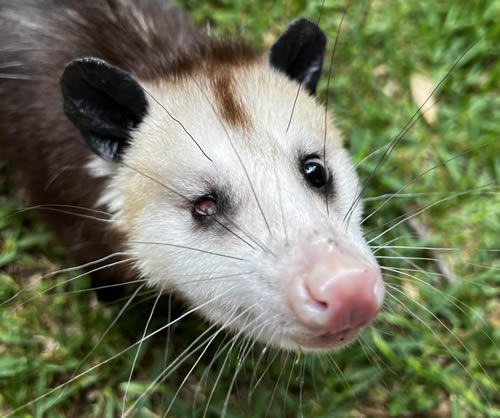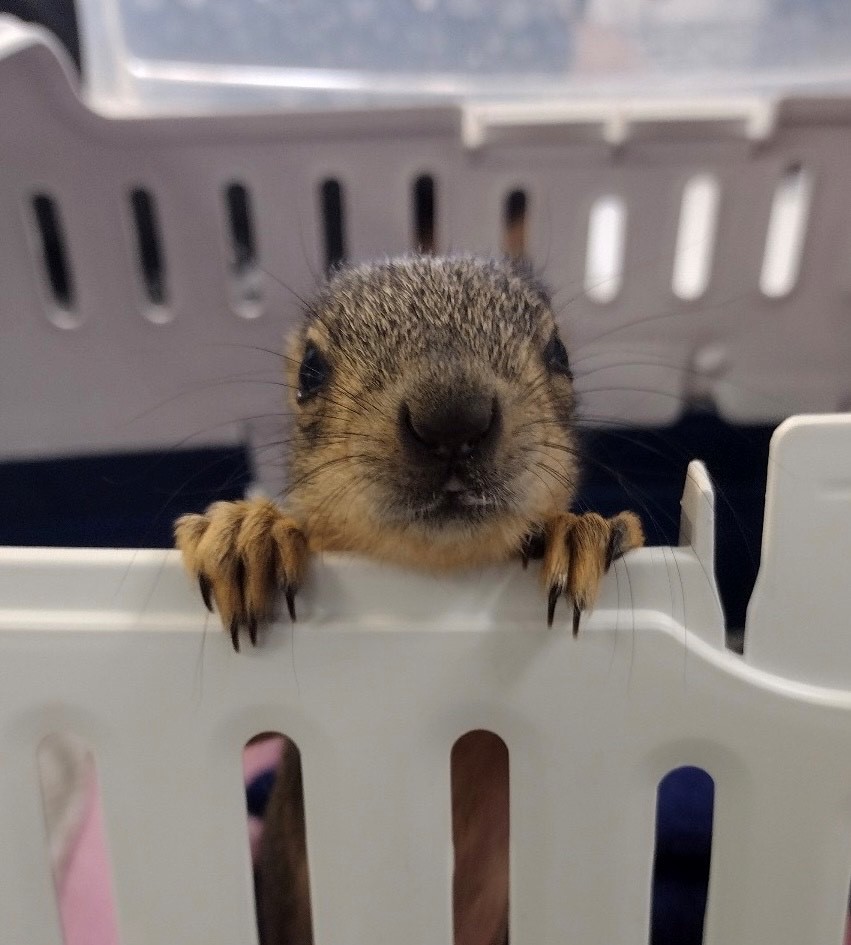WE ARE CURRENTLY NOT ACCEPTING ADMISSIONS FOR THIS SPECIES. PLEASE VISIT ANIMAL HELP NOW TO FIND A WILDLIFE CENTER THAT IS ACCEPTING THEM NEAR YOU.
Have you found a BABY hawk or owl?
If you have found a baby hawk or owl, please give us a call at 713-468-8972. Follow the Temporary Care Instructions below until you can speak with someone to determine the next steps.
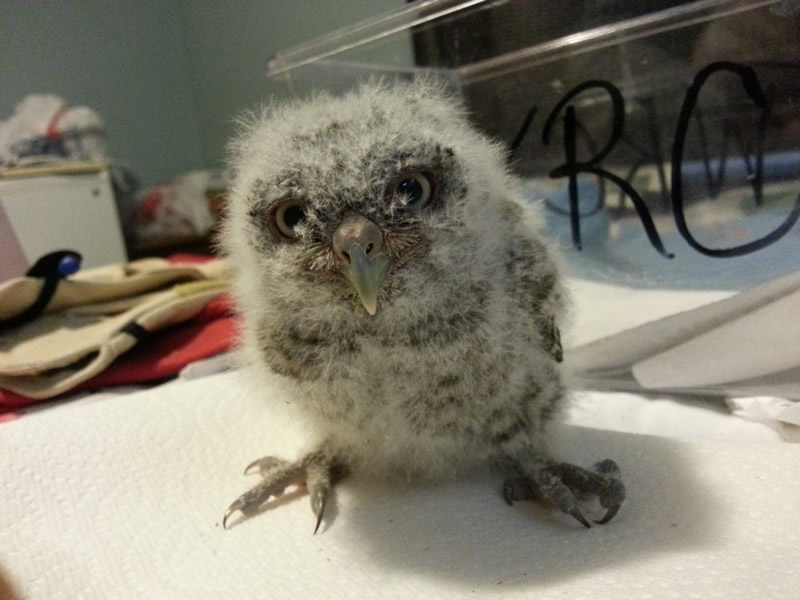
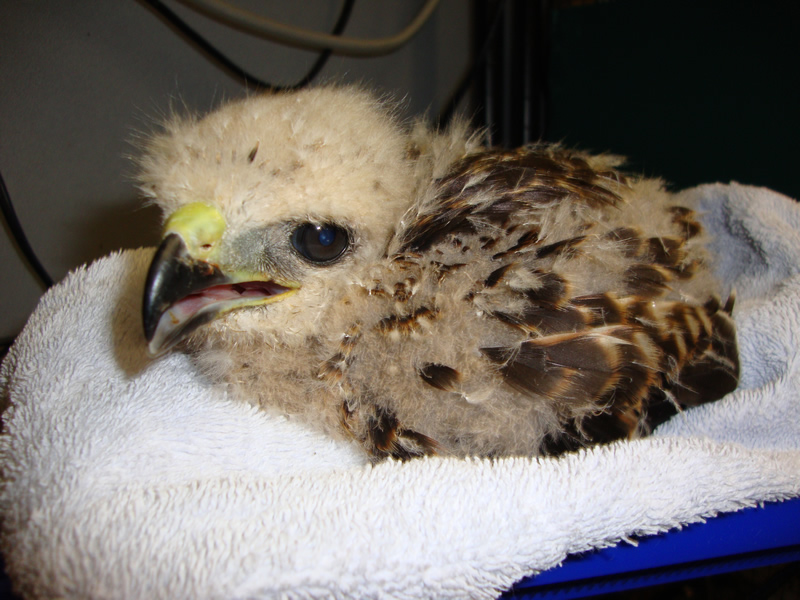
Have you found an INJURED or ILL raptor?
If you find a bird of any age that is:
- Caught by a cat or dog
- Visibly injured
- Unable to walk
- Limping or dragging a limb
- Lethargic
- Covered in ants or flies
- Sitting on the ground or within reach of people for an extended period
- Attempting flight but cannot get higher than a few feet off the ground
Please contact us at 713-468-8972 as soon as possible to determine further steps. If we are closed, leave a voicemail and follow the Temporary Care Instructions below.
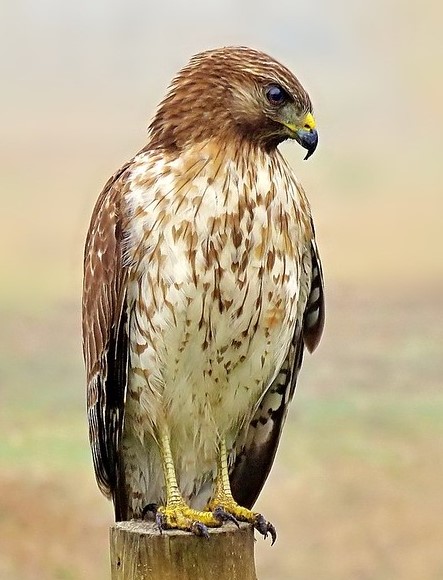
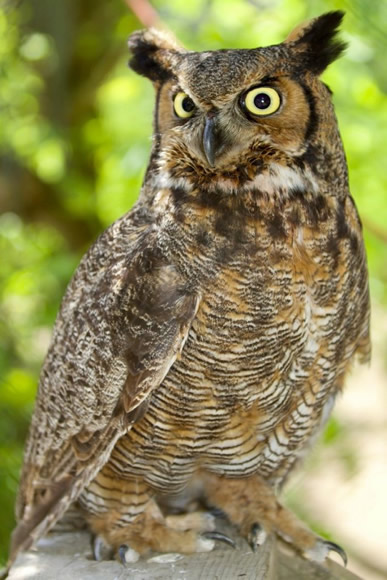
Temporary Care Instructions for ALL Animals:
- Houston Humane Society Wildlife Center (HHS Wildlife Center) recommends that you wear gloves or use a cloth barrier when handling wildlife.
- Prepare an appropriate-sized cardboard box by poking air holes in the top and placing a soft cloth (T-Shirt, towel, paper towels) in the bottom. DO NOT put the animal into a plastic bag.
- Place the animal into the prepared box and tape the box shut. For injured adults, place the box on its side next to the animal and use a stick, broom, or rolled-up newspaper to gently push the animal into the box.
- Do not give the animal any food or liquids. Feeding an animal an incorrect diet can result in injury or death. In addition, rescued animals can get wet from liquids and become hypothermic and/or spill food on their fur/feathers, potentially causing damage.
- Keep the animal in a warm, dark, quiet place. Darkness makes the animal feel more secure. If the animal is a baby, the box can be placed half on and half off a heating pad set on low. If the animal gets too warm it will move to the other end of the box. Do not place adult animals on a heating pad.
- Leave the animal alone. Human noise, touch, and eye contact are very stressful to wild animals and can result in shock or even death. This is especially important in the case of injured or adult animals.
- If an animal has been caught by a cat or dog, please call HHS Wildlife Center immediately at 713-468-8972. Even if wounds are not visible, the animal needs medical intervention as soon as possible.
- Keep children and pets away. BE CAREFUL! An animal that is hurt or frightened may bite.
- Call HHS Wildlife Center at 713-468-8972 as soon as possible!
General Information about Raptors in the Houston Area
A raptor is a special type of bird which captures live prey. The word “raptor” means “to seize or grasp” in Latin. Raptors use their powerful, sharp talons to capture their prey and to defend themselves. Though it’s difficult to estimate the lifespan of raptors in the wild, the life expectancy of most raptors ranges from five to ten years. The oldest great-horned owl in the wild lived to be 28 years old. However, most birds do not make it past their first winter.
In the Houston area, baby raptors can be found year-round, but the most common months to see them are from April - July. Baby season varies depending on the raptor species. The most common species found in the Houston area include the great horned owl, barred owl, barn owl, red-shouldered hawk, red-tailed hawk, Cooper’s hawk, sharp-shinned hawk, Mississippi kites, eastern screech owl, black vultures, and turkey vultures.

